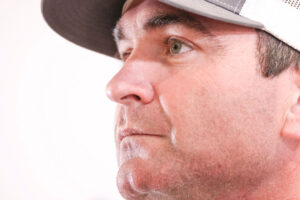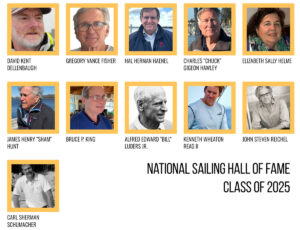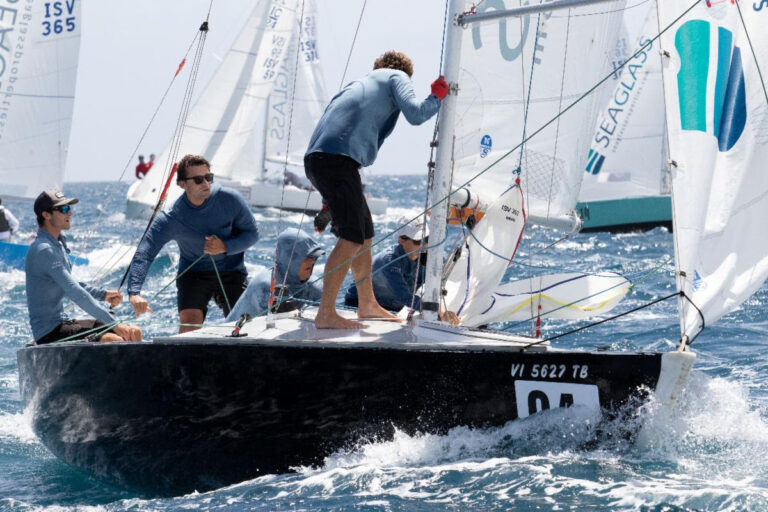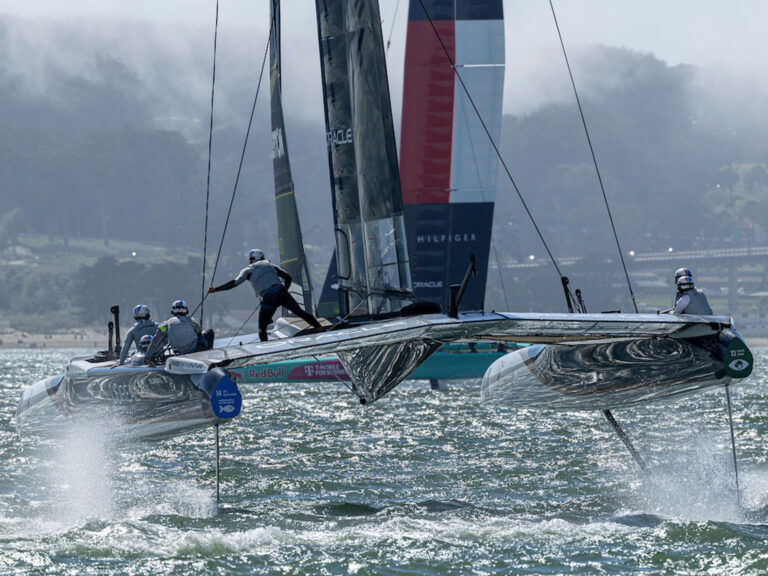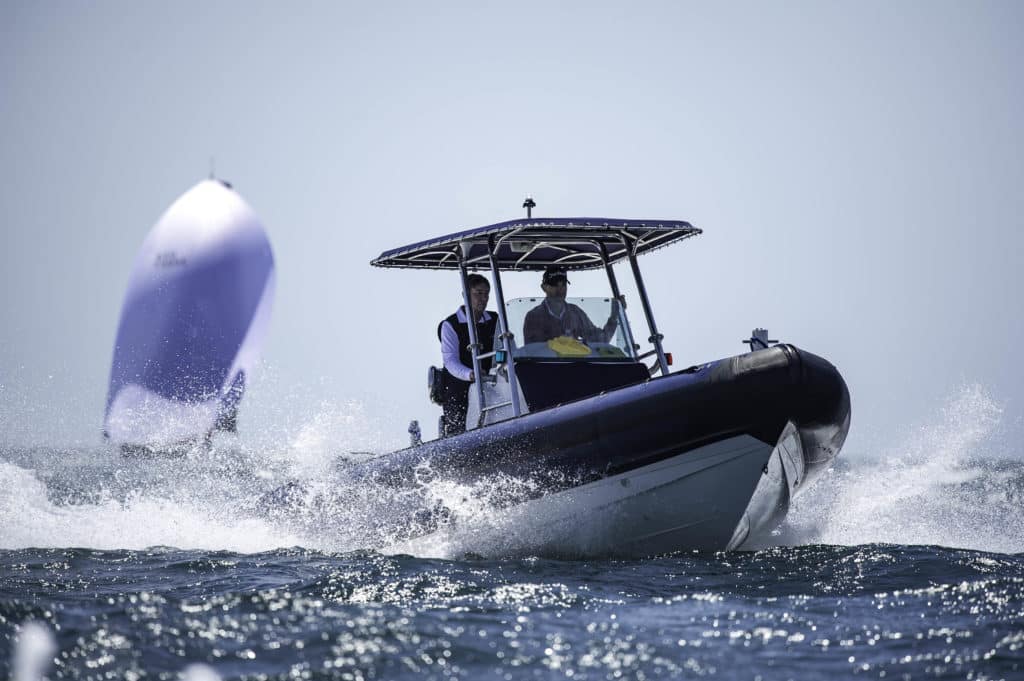
Performance is importance in competition, right? Of course it is.
Each sport might vary in its approach, but support in any way is critical to athletic competition. There are coaches and trainers and layers beyond that, and winning formulas are copied and improved upon. But excellence doesn’t come cheap. Investments must be made. Success is not accidental.
This is especially true with amateur sailing. The big paydays seen in other sports don’t ever happen in ours, but if winning remains important, we don’t have to look far for examples. One must simply get the best athletes, equip them with the best gear, provide them with superior support, and guide them with brilliant coaches. “Winning is all in the preparation,” says five-time Olympic medalist Ben Ainslie.
While sailing has competition rules, there are no defined preparation rules. And like most everything, investment in preparation continues to creep ever higher. Without restrictions, one’s approach to a recreational sport can become quite professional. Depending on your type of sailing, pursuing the pickle dish has gotten seriously expensive.
There are those who will always play harder—always have, always will. However, I fear we are teetering on the edge of taking ourselves too seriously. Even respect for the game is getting lost in the fog of winning at all costs. A new level of support is coming out of the shadows and onto the podium. I’m seeing far more photos of winning sailors accepting their trophies alongside their coach, and I am struggling with the optics and the message. There is a heightened urge for improvement. It’s not just sailing; it’s in all sports. Maybe it’s fueled by helicopter parenting, but I wonder how it impacts the ability for people to get into the sport, or stay in the sport. While it is hard to say that knowledge is ever bad, can standards get set so high that people aren’t willing to make the commitment?
Coaching for sailing has become exceedingly professional with standards, certifications and analysis tools. From learn-to-sail classes up to elite competition, coaching is now a well-paid, protected profession that has requirements to entry and provides a highly valued product. It is no longer just the best summer job I ever had, but now a full-fledged occupation that will continue to make its mark in the sport.
It’s impressive witnessing the scale of support now seen at the upper end of the sport. The hundreds of RIBs at the Rio Olympics made me wonder about the carbon footprint of our sport. During the World Cup Series in Miami, I followed the 49er skiffs around the course, watching coaches with cameras do the same. With no restrictions on contact outside of racing, sailors and their support would meet after each finish for a debrief with iPad video review.
The TP52 Class at Quantum Key West Race Week was shadowed by an armada of support boats—every race boat had at least one RIB filled with personnel. Sails would get shuffled on and off, and tuning sessions were videoed from water and with drone by air. Coaches jockeyed for position at the start, with the RIB fleet following closely behind upwind. At the end of each day, a shore team received the boat as the crew met up with coaches for detailed analysis. It’s most certainly a template for success, but just make the check payable to….
The Melges 32 class changed its coach boat rule a few years ago to allow communication between races. “It was often difficult to have family friends come out and watch, and teams and sailors could only wave,” said class manager Sam Rogers. “This helped relax the environment and made it more fun with sailors being able to communicate with support boats.”
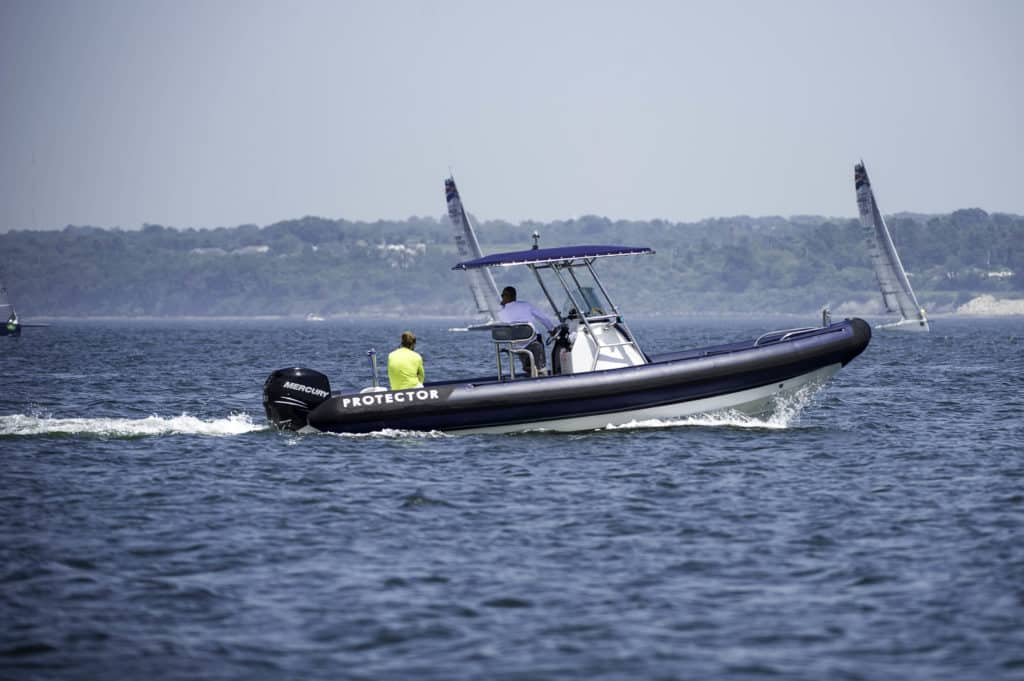
The change was also intended to help lower-tier teams that could benefit from getting information on the water during races. This, of course, required an actual coach, which some teams could not afford. So the class worked with a few of the top-tier teams to adopt a team and help provide them coaching on the water.
“This worked well,” says Rogers, “but having the top teams receiving coaching as well also raised the bar of competition. In the end, I feel it would be better to keep communication closed on the racecourse because most teams in a class of smaller boats will not be able afford a coach. It will widen the arms race because getting real-time information on the water is invaluable.”
That’s the approach the class will take at the 2017 Melges 20 World Championship to be held later this year in Newport, Rhode Island. Class rules state how race boats “shall receive no outside assistance from: support boats, cellphone or radio communication, visual or vocal signaling, transfer of equipment or victuals or otherwise once she has left the dock for the day until she has finished the last race of the day” and how “a boat should not be towed once she has left the dock for the day until she has finished the last race.”
However, I’ve raced in numerous regattas where I have been both on and off a tow line after the last race. As good as it feels to get that fast ride back to the dock, it feels equally crummy to watch it happen. While banning tows in after racing might seem Draconian to those with support boats, it goes a long way toward managing class culture. Another issue that impacts the vibe is pre-regatta training. It can be discouraging to the weekend warrior to show up at a regatta after the elite teams had been on-site for several days. While you can’t ban training, rules can limit access to the race area.
While racing against someone with a private coach on the water can be frustrating, a coach’s impact during a regatta might be even more significant beyond the racecourse. “Some of the big gains outside of racing is in how I can add some structure to the team,” notes professional coach Grant Spanhake. “I concentrate on the details by looking at photos and video, measure sail shapes and mast bend to help with tuning, and in how I formulate a plan going forward to improve a team’s regatta performance.”
It’s interesting to note how class culture does impact the approach to the game. Several years ago, the Thistle Nationals were held in San Diego, and I imagined how vital a support boat would be to performance. It was a long sail to the course, the racing venue was not well understood, and there were no limitations on receiving outside assistance. Yet, not one team had a support boat.
More recently, a friend was describing a scow regatta that included a competitor with a private coach. It wasn’t something you’d normally see in this particular class, so respected class members spoke to the person about their “unwritten rules.” The lesson here is that if you like how your class culture handles certain issues, it might be time to firm up the rules to keep them that way.
If the mission is to strengthen the sport and reduce the gap between the haves and the have-nots, professional sailor and coach Nick Turney might be onto something: He has been growing what he calls the “Mentor Program” for the Lightning class, which works with sailors who are new to the fleet—in particular, sailors who tend to struggle to post consistent good results, and back-of-the-fleet sailors. “I get the good guys to contribute, which gets the whole class involved,” says Turney. “The new guys feel welcomed, the back-of-the-pack sailors learn a ton, and everyone is coming together and having fun. That’s most important part for any fleet, to have fun. It makes everyone feel welcome.” Amen to that. ■

